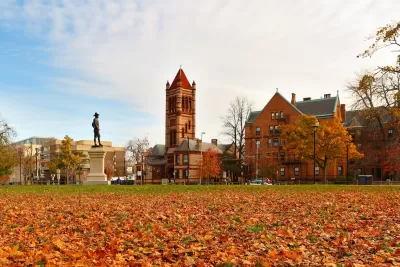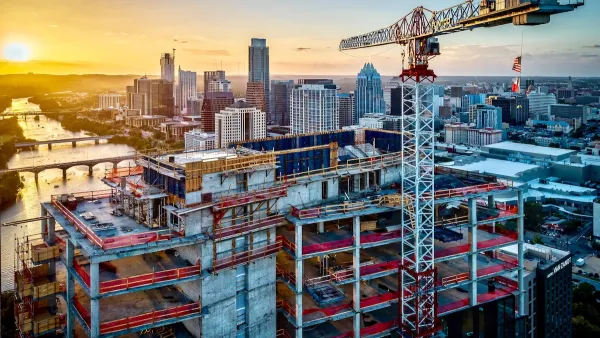Developers can now build housing of up to six stories in the Massachusetts city.

The Cambridge, Massachusetts city council voted 8-1 in favor of zoning reforms that could encourage more housing construction and higher density, lowering costs for residents.
According to an article by Mark Lannaman in Saporta Report, “Before last Monday’s changes, single-family zoning and other exclusionary zoning codes were in place throughout many parts of the historic city that has seen generations of students call home. Now, with the approved changes to the zoning code in Cambridge, up to four stories can be built anywhere in the city, and six stories on lots greater than 5,000 square feet.”
Prior to the changes, 85 percent of the city was made up of “nonconforming” buildings built prior to the current zoning code. “You couldn’t build anything in much of the city besides a large mansion, and I think there was a lot of distaste for the status quo,” said council member Burhan Azeem.
To allay fears of the city growing too quickly, the new regulations limit development to six stories citywide to encourage middle density that, ideally, will support a growing population at a reasonable pace of change. “The zoning changes are projected to add 1,195 new housing units by 2030, including 220 affordable units; that number rises to 3,590 new homes by 2040, including 660 affordable units, according to the Cambridge Development Department.”
The changes will also allow homeowners to divide larger homes, which was not allowed under prior rules.
FULL STORY: Zoning out: Cambridge, MA delivers huge win for urbanists and residents worried about housing

Maui's Vacation Rental Debate Turns Ugly
Verbal attacks, misinformation campaigns and fistfights plague a high-stakes debate to convert thousands of vacation rentals into long-term housing.

Planetizen Federal Action Tracker
A weekly monitor of how Trump’s orders and actions are impacting planners and planning in America.

In Urban Planning, AI Prompting Could be the New Design Thinking
Creativity has long been key to great urban design. What if we see AI as our new creative partner?

California Creates Housing-Focused Agency
Previously, the state’s housing and homelessness programs fell under a grabbag department that also regulates the alcohol industry, car mechanics, and horse racing.

Chicago’s Ghost Rails
Just beneath the surface of the modern city lie the remnants of its expansive early 20th-century streetcar system.

Baker Creek Pavilion: Blending Nature and Architecture in Knoxville
Knoxville’s urban wilderness planning initiative unveils the "Baker Creek Pavilion" to increase the city's access to green spaces.
Urban Design for Planners 1: Software Tools
This six-course series explores essential urban design concepts using open source software and equips planners with the tools they need to participate fully in the urban design process.
Planning for Universal Design
Learn the tools for implementing Universal Design in planning regulations.
planning NEXT
Appalachian Highlands Housing Partners
Mpact (founded as Rail~Volution)
City of Camden Redevelopment Agency
City of Astoria
City of Portland
City of Laramie





























